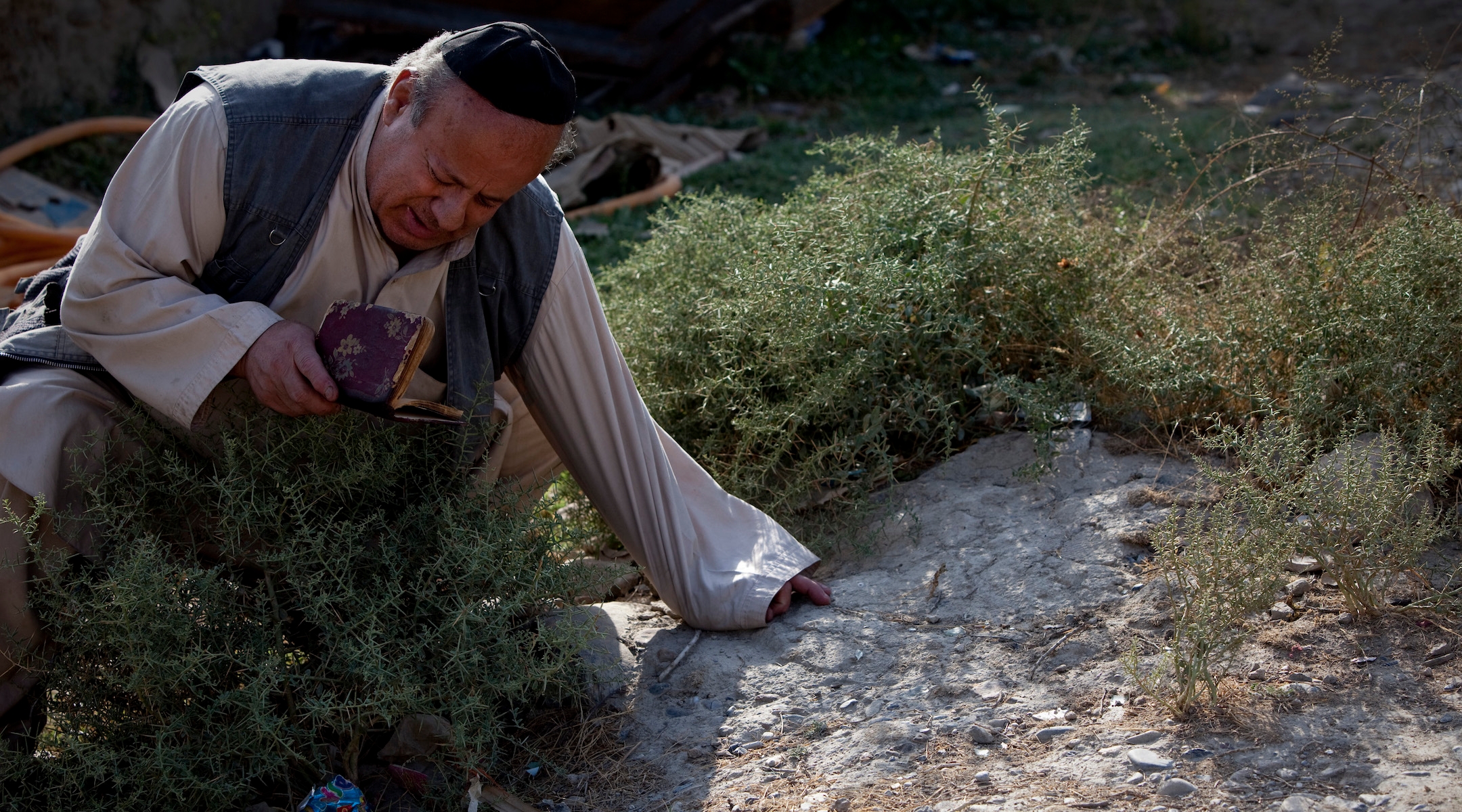It sounds like an ancient rabbinic parable traversing generations of oral tradition: The infighting of the last two remaining Jews of a village costs them their Torah.
But it’s a modern-day tale that takes place in the heart of war-torn Afghanistan.
And it’s making headlines in the premier news organizations of the world.
With all eyes focused on Afghanistan, why have the media — including CNN on Monday night — narrowed in on a personal, Jewish feud?
“Because Jews are news,” said Elan Steinberg, executive vice president of the World Jewish Congress.
Put simply, he said, “there is a fascination that the Jewish people are a constant theme of recorded history.”
Steinberg also believes that people instinctively realize the direct relationship between the health of a nation and its Jewish community.
“I think anyone who has an understanding of history looks at that,” Steinberg said, calling the fall of Spain after its expulsion of Jews in 1492 a “classic example.”
“I don’t think it’s an accident that Afghanistan, which is, by all means, flat on its back, doesn’t have a Jewish community there.”
Ishak Levin, a Persian Jew in his 70s, and 42-year old Zebulon Simantov live in separate rooms of Kabul’s synagogue and are said to be the country’s last remaining Jews.
The community once numbered as many as 40,000, but by the mid-20th century, about 5,000 remained.
Most of them, however, left in the 1950s and 1960s after the creation of the State of Israel. The rest left shortly after the Soviet occupation in the late 1970s and early 1980s.
According to Simantov’s cousin, Mayer Simantov, who lives among a 200-family strong Afghan Jewish community in the Queens section of New York, the fight began about three years ago when he said his cousin tried to send the synagogue’s Torah to a friend in Israel.
Simantov, who said he was excited to see images of his old synagogue when CNN reported the story, said the story goes like this: Levin reported Simantov to the Taliban government for ostensibly stealing his Torah whereby the government then confiscated the Torah and jailed and tortured both men.
Levin, however, has accused Simantov of asking the Taliban to take the Torah for safekeeping, according to The Associated Press.
“You ever heard of two Jews, three synagogues?” joked Simantov. “These people prove that.”
Joking aside, Simantov lamented, “They’re fighting for nothing, and the newsmen are taking advantage. In the meantime, we lost the Sefer Torah because of this stupidity.”
Simantov said the antique Torah is very valuable — perhaps worth half a million dollars.
When the Taliban was still in control, it was rumored to be advertising its sale in Pakistani papers. But with the Taliban now defeated by the U.S.-led coalition, the fate of the Torah is unknown.
In the CNN report, Taliban officials denied possession of the sacred scroll.
Apart from the oddity of their strained relationship, the question for many is why the two men — who both have family in Israel — have continued to live in Afghanistan.
Rabbi Jacob Nasirov of the Afghani Congregation Anshei Shalom in Queens, said, “I don’t know how they can sleep every night, you don’t know what happens every hour of life.”
Nasirov said he heard that Levin remains in Kabul to care for the synagogue, but “even our Bible says your life is before everything.”
Nasirov said the Afghan community in Israel has made several offers to fly the men to Israel, and his community can’t understand “even 1 percent” why they stay.
He said that with the fall of the Taliban, he hopes efforts to convince them to leave will be renewed.
Simantov guessed that Levin, a healer with ancient antidotes for many afflictions, stays in Kabul because he is comfortable there.
He lives in the synagogue for free and is making money, said Simantov.
“They don’t like Jews,” he said.
Still, he said, “somehow they use us because they think we have more wisdom, or sechel.”
As for his cousin, he said, Simantov wants to leave Afghanistan, and he is trying to to help him. But no one in his family has been able to reach him since shortly after Sept. 11.
Amir Shaviv, who oversees many rescue operations as the assistant executive vice president for special operations of the American Jewish Joint Distribution Committee, confirmed that the Afghan community in Israel tried for years to move the two, but they refused vehemently.
“I think the week of Chanukah is about miracles,” Aviv said. “This is an inverted miracle of Jews who insist on staying in a hostile country.”
JTA has documented Jewish history in real-time for over a century. Keep our journalism strong by joining us in supporting independent, award-winning reporting.
The Archive of the Jewish Telegraphic Agency includes articles published from 1923 to 2008. Archive stories reflect the journalistic standards and practices of the time they were published.




